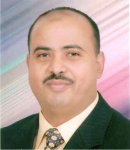|
Plenary Lecture
Long-Term Evaluation of Anti-Interleukin 2 Monoclonal
Antibodies as Induction Therapy in Live Donor Kidney
Transplantation: A Critical Review

Assistant Professor Hussein Attia Sheashaa
Department of internal medicine & Nephrology
Urology & Nephrology Center
University of Mansoura, Mansoura
Egypt
E-mail:
drhattia@yahoo.com
Abstract: The potential
benefits of induction therapy
using anti-T-cell antibodies were
established. However, the
utilization of these agents could
be associated with several side
effects. Long-term retrospective
studies have not shown significant
benefit of routine induction by
the use of depletional antibody
therapy regarding patient and
graft survival and it was
suggested that patient survival
may be impaired as a result of
increased early cardiovascular and
infection related mortality.
Monoclonal antibodies against IL-2
receptors were introduced and
tested in the clinical setting.
Several reports had documented
their therapeutic advantage in
cadaveric and live-donors renal
transplantation on short-term
basis. It was claimed that these
agents allow selective
immunosuppression without
augmented morbidity and/or over-immunosuppression.
In my plenary Speech, I'll
summarize the advantages and
disadvantage of the use of anti-
IL-2 antibodies as well as I'll
report my center experience.
Brief Biography of the Speaker:
Hussein Sheashaa is an assistant
professor of Internal medicine and
nephrology at Urology and
Nephrology Center, Mansoura
University, Egypt. His area of
expertise is the clinical aspects
of live donor kidney
transplantation. He authored or
co-authored over 60 scientific
papers published in reviewed
journals or presented at
international conferences. He
wrote a chapter entitled
Schistosomiasis and renal
transplantation, a critical
review. In: Kidney
Transplantation: new research
edited by Judith Fox, Nova Science
Publisher, inc, pp. 105-123, 2006.
He had the opportunity to be a
research fellow at Brigham and
women's hospital, Harvard
University and he is a member of
American society of
transplantation. Moreover, he is
the director of annual Mansoura
international hemodialysis course
that is held at Urology and
Nephrology Center, Mansoura
University, Egypt.
|